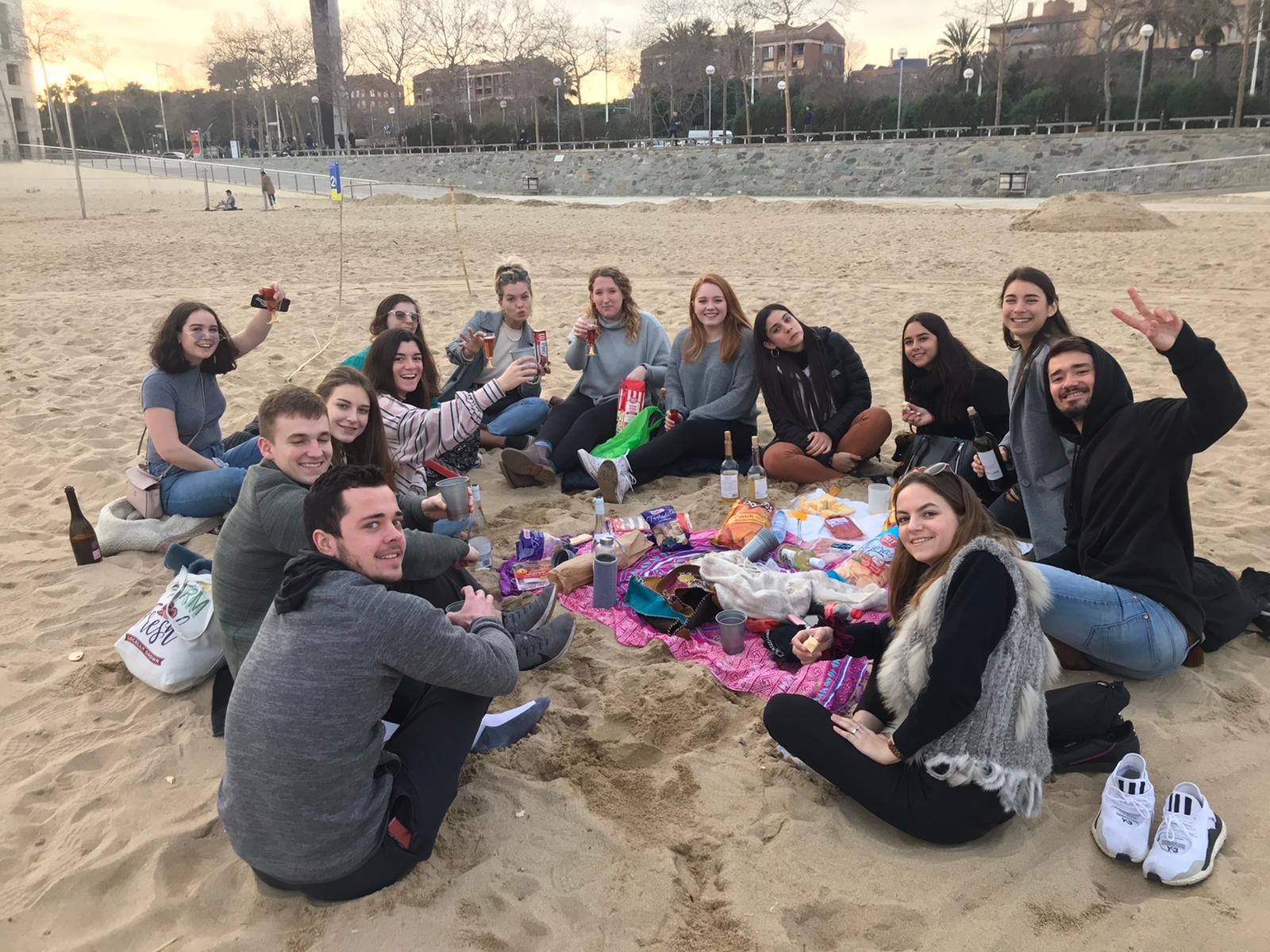
The coronavirus, officially known as COVID-19, has canceled graduations, postponed weddings, and upset travel plans as governments around the world have worked to flatten the curve of infections. As University Abat Oliba CEU in Barcelona, Spain, transitioned to online classes and the Spanish government declared a state of emergency, international students were left to decide whether to stay for the duration of their study abroad or return home to their families.
The Escalation
On March 3, 2020, UAO international students from the Catholic University of America in Washington, D.C., were sent home from Barcelona, Spain, due to the coronavirus, or COVID-19.
“It was so sad to leave,” said Hannah Cundey, a student studying Spanish language and history. “But, I’m so grateful for good health, wonderful friends and family, and amazing friends. I’ll be back!”
At the time of their departure, Spain maintained a business-as-usual approach. Additionally, the virus was not perceived as an immediate threat by faculty members and students at UAO. Although students from the Catholic University were back in the United States, lectures continued at UAO, Erasmus parties went on, and international students continued their study abroad experiences. Aside from the college’s implementation of automatic hand-sanitizing machines around campus, the rising number of coronavirus cases did not seem to pose an immediate threat.
On Wednesday, March 12, the World Health Organization (WHO) declared the coronavirus an international pandemic. Panic followed soon after as teachers began to discuss moving classes online and international students began to consider returning home. Just down the road from UAO at the Mercadona in Sant Gervasi, the supermarket showed signs of the pandemic. It was wiped clean of toilet paper, non-perishable goods, as well as meats and fruits due to the coronavirus.
To Go
Melia Deniz, a Polish student at UAO, became worrisome that Wednesday. When she got word that Poland planned to close its borders that Friday, Deniz and many of her Polish classmates booked the quickest flight out of Barcelona due to the coronavirus.
By Thursday, few students were in attendance for lectures at UAO due to the coronavirus. That evening, UAO students received an email from the Vice-Vector of Student Affairs announcing that classes would transition to an online teaching style. The next day, the Spanish government declared the coronavirus a state of emergency. Effective Monday, March 16, individuals were to remain inside of their homes unless they needed to obtain essential goods.
Olivia Kavaya Savage, a British student studying communication, decided to return home to the United Kingdom to avoid the Spanish lockdown due to the coronavirus. Two weeks later, Savage is amidst a three-week lockdown in her hometown of Kent as Spain continues its emergency lockdown initiatives.
“All of us have dispersed back to our home countries, dotted all over the world,” Savage said. “It’s hard to comprehend that this has been the worst time to ever do a study abroad program. Our trip was too good to be true. It was marvelous while it lasted, and it has truly shown what the phrase ‘you never know what’s around the corner’ is.”
To Stay
While 48.5% of students decided to return home in light of the country’s lockdown, 25% chose to stay in Barcelona through the lockdown. For Markus Wolsiffer, a German journalism student at UAO, he had no choice but to stay in Barcelona for his health.
“Most importantly, with my asthma, I really need to be careful,” Wolsiffer said. “I missed my grandma’s 80th birthday today. I would have traveled to Germany last weekend.”
Two American students, Sarah Butler and Nicole Newman, initially decided to stay in Barcelona despite the quarantine. One week into their Spanish quarantine, Butler and Newman’s university, St. Louis University, cut their study abroad program. With travel bans now threatening their ability to return home, they ultimately decided to return to the United States on Sunday, March 22.

International Office’s Response
Anna Donaire, UAO’s International Coordinator, has been working with the university’s administration, international students, and partnering universities to make the most of the situation due to the coronavirus.
“We understand there are a variety of situations and backgrounds, and for those who live in very distant countries and are unable or unsure whether they may be able to return, we have offered the possibility to continue their education online once the face-to-face tuition resumes,” Donaire said. “Each teacher will decide on final exams or deliveries for each course, but the International Office will be in contact with home universities to facilitate the process should proctors be necessary.”
Donaire created Microsoft Teams in order for international students to connect virtually and ask questions due to the coronavirus. Microsoft Teams allows for members to instant message with the international student community at UAO.
“We have learned that whereas education is important, the health and safety of our community comes first and that when the situation requires so, everyone shows their very best,” Donaire said.
According to Donaire, only 25% of international students still reside in Barcelona as COVID-19 continues to force Barcelona into lockdown due to the coronavirus. Despite the inability of international students to complete their semester abroad on-site, the international office is working to protect the safety of its students while continuing to create an enriching experience.